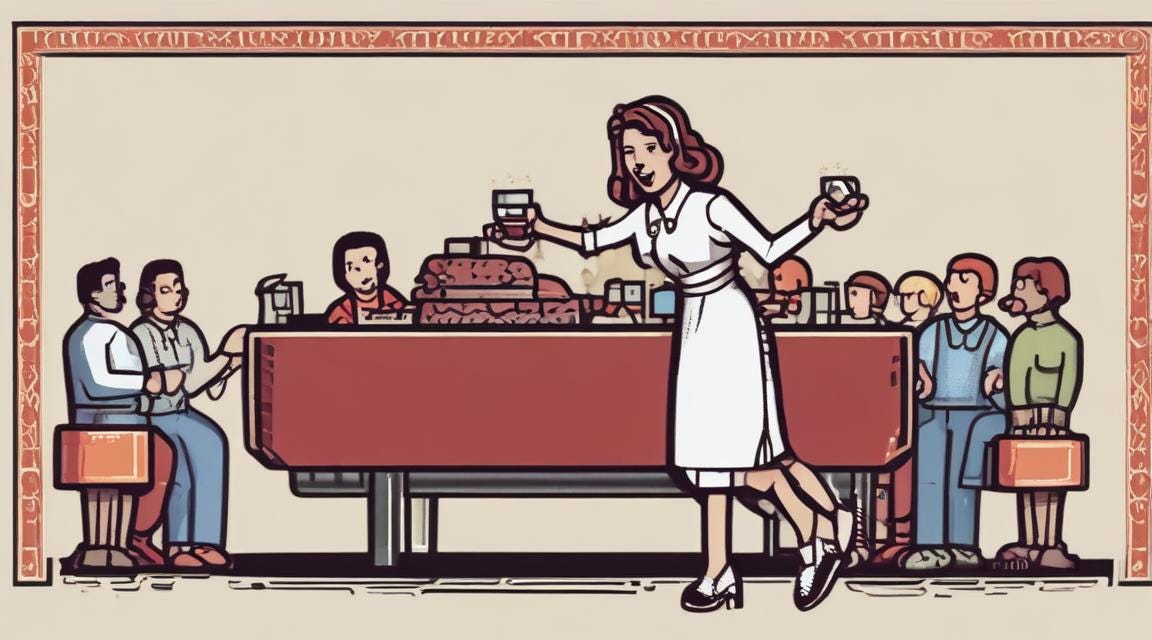Events: Why connecting is better than networking
Form lasting relationships and skip speed dating
I break into a sweat and shivers run down my spine when I hear the word “networking”. It triggers memories of balancing a plate and a glass while trying to shake someone’s hand and answer with a mouthful of food when a well-meaning colleague pounced on me with a C-suite executive in tow. (Full disclosure: The glass of red wine and the plate full of roast beef, vegetables, and gravy ended up in equal measure on my white shirt and the shoes of the elegant woman in front of me. The hasty swallowing went all wrong, and I cough-spurted broccoli in all directions.)
I learned not to wear anything white to events, and nowadays mostly avoid messy food and stick to water. While I still don’t like the idea of being cornered by the conference bore or anyone who aggressively pushes a product, I now relish event conversations with attendees who exchange insights and experiences. Most are informed, clever and generous.
You can tell how good an event is by the level of lunchtime buzz. It’s great to walk through a room and hear animated discussions.
It’s all about meaningful connections, though, and not the negative perception of networking. As events guru Julius Solaris points out: “Content is a crucial registration driver, but connection is what attendees crave.” Our research confirms that people sign up to events to learn more, but value conversations most. They want to feel they belong and have a shared purpose.
Connecting is a much broader concept than networking. It starts long before the event by, for example, introducing event speakers on video and giving a sneak peek into presentations so that attendees can prepare questions.
A great event will have attendees connect with the content on and off stage. My experience, as yet again seen at the recent PRCA UK Conference in London, is that people engage better with lively panel discussions and shorter yet punchier presentations that are practical and applicable. They relish the chance to ask questions or to follow up with speakers and other attendees afterwards. (By the way, asking a good question is nearly guaranteed to have people come up to you after a session.)
Smaller, streamlined events are often better for connecting with peers - chances are you have more in common with other attendees and share the same goals. In fact, most people prefer events with less than a hundred attendees as cliques are less likely to form.
On a practical level, it helps if event organisers issue clearly legible lanyards or name cards, and after my roast beef horror, I prefer bite-sized, healthy food options to buffet-style catering to make conversation (and moving on) easier.
Connecting is not speed dating, though. Conference bins are full of business cards stuffed into reluctant hands with a pushy pitch. It sounds obvious, but be real. Be prepared to listen, offer value, connect on LinkedIn, follow up with a message or email and arrange a meeting.
Engaging with the event content afterwards deepens the connection. Completing surveys is invaluable to event organisers, and many speakers provide QR codes for their research.
A good post-event report will highlight key trends and takeaways from all the sessions, and audio or video recordings will jig your memory. This content has the added benefit of being an excellent conversation starter for all those meetings you have set up with other attendees.
Great event organisers form communities where they continue to engage with attendees. They also help attendees to collaborate and provide a platform where they can carry on their conversations with peers.
Many a lasting industry relationship has been cemented by repeat attendances. So, if you formed good connections at an event, book the next one.
PS. I made such a bad but deep impression by my clumsy spitting and spilling that the rather intimidating executive took pity on me. Twenty years later, we are still firm friends. My lesson from this is: if nothing else, at least be memorable.


